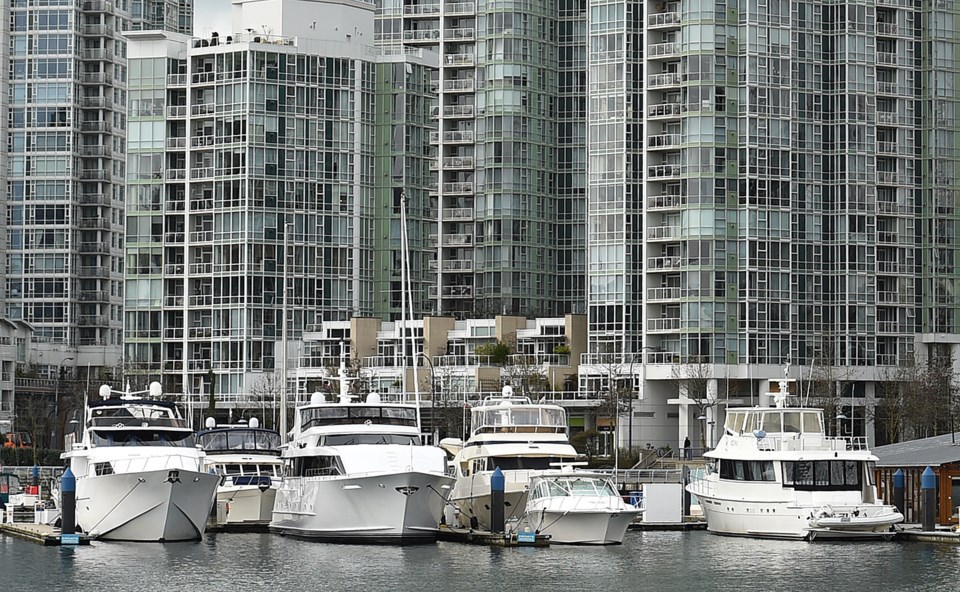Vancouver police have identified a gap in the record-keeping and sale of high-end boats to people tied to organized crime in the city.
Deputy Chief Laurence Rankin said the information has been supplied to Crown counsel acting on behalf of government in the Cullen Commission of Inquiry to Money Laundering, which began Monday.
“We’ve identified a number of individuals with ties to organized crime that possess pleasure craft operator cards who were operating marine vessels with significant value, but those vessels weren’t registered to them,” Rankin told the Vancouver Police Board Feb. 20.
“So based on that information, we believe it reveals gaps in the record keeping for the sale and purchase of marine vehicles, and that may require and benefit from a review of regulatory processes that exist at this time.”
Rankin said police reviewed 10 years of investigations in Vancouver involving “substantive criminal offences” that had a nexus to money laundering. That research led police to submit 42 files to the inquiry.
The department was asked for follow-up on 29 of those 42 files and given a further request from government lawyers for information on high-end marine vessels in Vancouver.
Meanwhile, Rankin said police continue to work with the City of Vancouver on anti-money laundering measures that will be revealed in a report expected to go before city council in March.
The report will look at ways to enhance the working relationship between the VPD and the City of Vancouver through a number of initiatives, including enhanced financial reporting, Rankin said.
“So more stringent financial reporting in the area of property ownership, in particular real estate procurement,” he said, noting police have also helped develop bylaws that regulate the use of cryptocurrency automatic teller machines and money service businesses.
Police believe cryptocurrency, in particular, is a tool used to facilitate money laundering. A VPD report published in February 2019 said there had been 70 cryptocurrency files reported to Vancouver police in just two months.
“This trend is alarming and should get the attention of every police leader and police board across Canada, as well as the Canadian government,” said the report, which went before the police board last year.
“The alarming rise in cryptocurrency files is primarily due to the way Bitcoin has been adopted by fraudsters as the instrument of choice to transfer funds.”
The report said unregulated bitcoin automatic teller machines are “an ideal money laundering vehicle.” Since there are no requirements to register customer details, “it is easy to see how cash can be transferred into bitcoin and vice-versa.”
“A user can also launder an unlimited amount of money using smaller transactions so as not to arouse suspicion, like they would at a regular bank,” the report said
“This becomes even easier if a criminal group were to purchase an ATM for a few thousand dollars and put all their cash through that one ATM, laundering the money as many times as required and either profit from or eliminate the transaction fee.”
The issue of money laundering attracted the attention of Vancouver city council in January 2019 when two councillors said citizens were bringing money in suitcases and reusable shopping bags into city hall to pay taxes.
That same month, the City of Vancouver announced it would no longer accept cash payments of more than $10,000 from people paying bills in an effort to prevent or deter potential money laundering.
The city said $10,000 is the limit that aligns with the Financial Transactions and Reports Analysis Centre (FINTRAC) reporting requirements for identifying and tracking money laundering.
In May 2019, Peter German — the author of two reports that detailed the extent of money laundering in B.C. — suggested to Vancouver council the city consider creating an anti-money laundering committee to review its financial operations.
@Howellings



